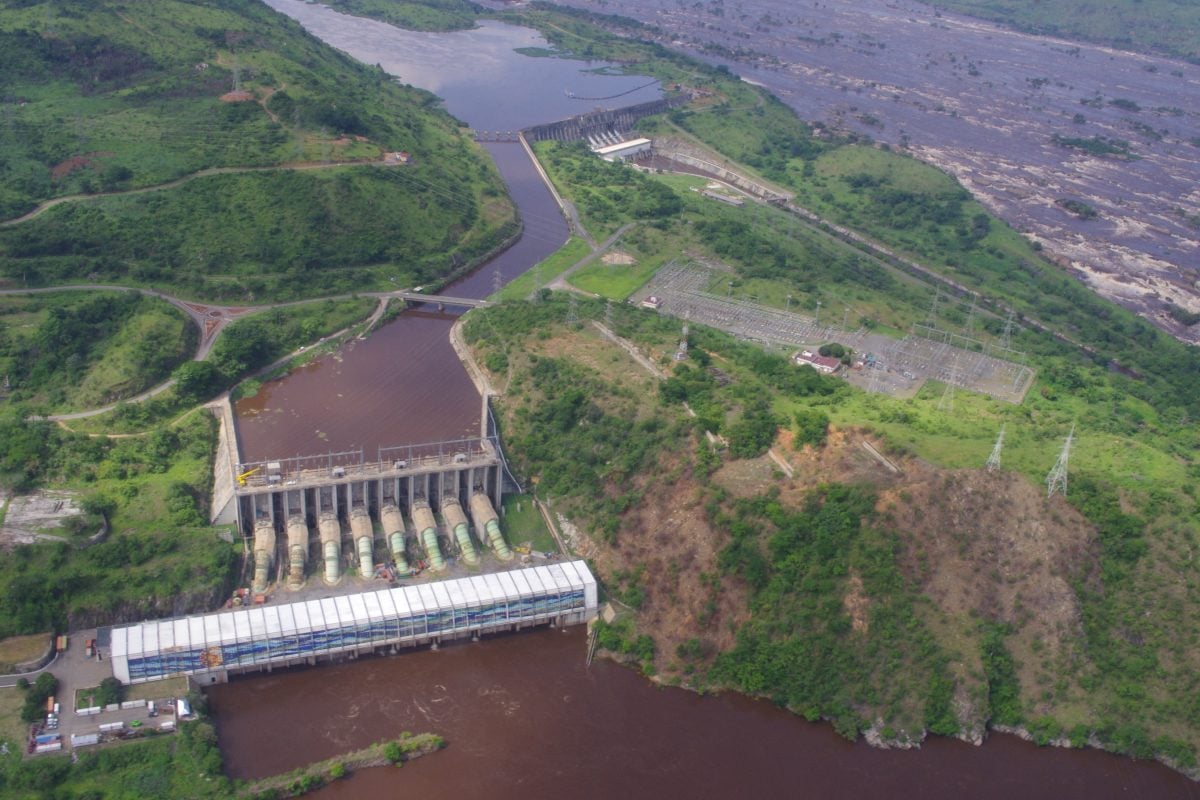Could the mighty waters of the Congo River help South Africa finally wake up from its loadshedding nightmare?
A glance at the map suggests this is an eccentric idea. The planned Grand Inga hydropower scheme lies more than 2,000km north of South Africa’s borders. But President Cyril Ramaphosa of South Africa and his Congolese counterpart Félix Tshisekedi held talks in Kinshasa last week on reviving the project, which has lain dormant for many years.
Under the Grand Inga scheme, several new hydropower projects would be constructed near the mouth of the Congo River (adding to two dams built between 1968 and 1982).
Power would be exported from the first of these new facilities, known as Inga 3, via one of the world’s longest transmission lines. This would need to pass through Angola, Namibia and Botswana to reach South Africa’s economic heartland in Gauteng province.
South Africa has been interested in Grand Inga’s power generating potential since at least the late 1990s, and signed an agreement with the Democratic Republic of Congo (DRC) on receiving electricity from the megaproject in 2013. South Africa’s Integrated Resource Plan – the key tool for guiding policy planning on energy – assumes the country will be importing 2,500 MW from Inga by 2030. Officials have previously spoken about doubling the offtake to 5,000 MW, equivalent to almost 10% of South Africa’s current generating capacity.
Reports suggest that the two countries are now aiming to finalise an agreement within 18 months. Front end engineering and design work would then need to take place on both Inga 3 and its accompanying transmission line, after which the project would need to finalise its financing project to enable construction to begin.
Related articles
- Droughts raise doubts over hydro’s future role in Africa
- Big hydro is back in fashion
- Africa’s race for transmission investment
Another false dawn?
The fact that Ramaphosa and Tshisekedi have restated their enthusiasm for Inga “reflects important political and economic considerations in both countries,” says Harry Verhoeven, senior research scholar at Columbia University’s Center on Global Energy Policy.
South Africa would benefit from a major new source of green power, while Tshisekedi could use Grand Inga to generate export revenues and position the DRC as a leader in regional climate change efforts.
Yet despite these benefits, Verhoeven believes it is “highly questionable” whether the scheme can progress. “The financial and technical obstacles remain daunting, as do the governance questions that have long bedevilled the project,” he says.
The World Bank agreed to help finance Inga 3 in 2014, but backed out two years later, euphemistically citing concerns over the “strategic direction” in which the Congolese government was taking the project. The World Bank’s change of heart resulted in progress on the scheme grinding to a halt for several years.
Patrick Edmond, managing consultant at strategic advisory firm Africa Matters Limited, a part of J.S. Held, is sceptical that the latest apparent step forward will prove to be a lasting breakthrough. “There have been multiple significant announcements about Inga’s development over the years that never bore fruit,” he tells us. “This is unlikely to be any different.”
Given the sheer complexity of the scheme, the multiple stakeholders involved and a price tag of at least $80bn, it is no surprise that finding consensus has proven to be so challenging. Edmond points out that “every iteration of the project has stumbled in slightly different ways.”
A subsidiary of Australian mining giant Fortescue Metals Group was awarded a construction contract for Grand Inga in 2021, although there has been persistent speculation that it will lose the contract to Chinese rivals. Meanwhile, Tshisekedi has reportedly courted various possible sources of finance and claimed at his press conference with Ramaphosa that the World Bank was considering re-joining the project.
Whether international lenders decide to back Grand Inga will depend partly on environmental and social considerations, particularly around resettlement. The NGO International Rivers has waged a longstanding campaign against the project, warning that Inga 3 would displace 10,000 people and plunge the DRC further into debt.
Want to continue reading? Subscribe today.
You've read all your free articles for this month! Subscribe now to enjoy full access to our content.
Digital Monthly
£8.00 / month
Receive full unlimited access to our articles, opinions, podcasts and more.
Digital Yearly
£70.00 / year
Our best value offer - save £26 and gain access to all of our digital content for an entire year!

 Sign in with Google
Sign in with Google 



